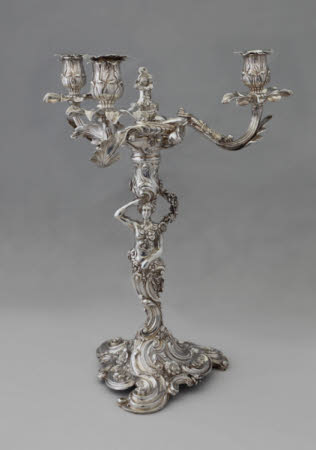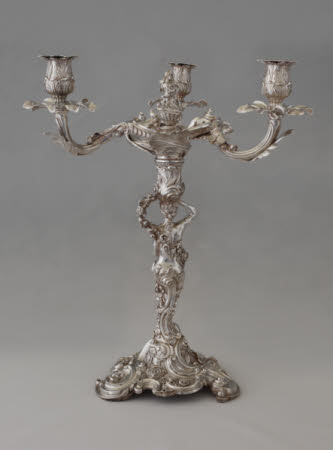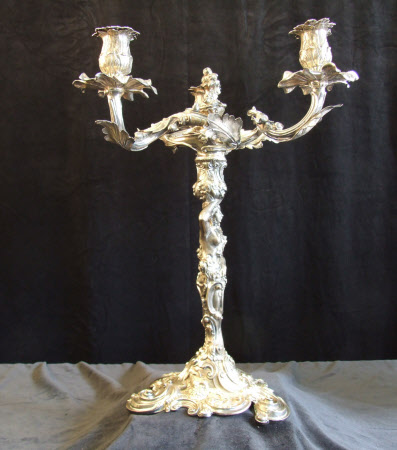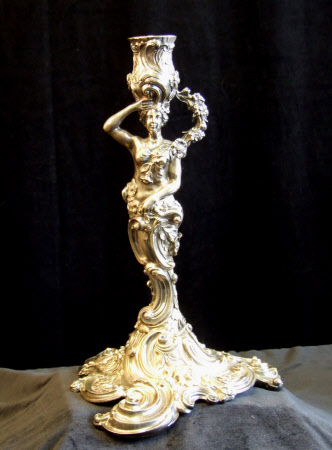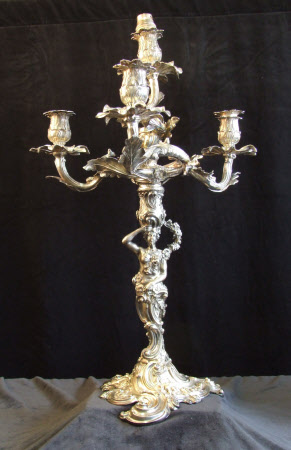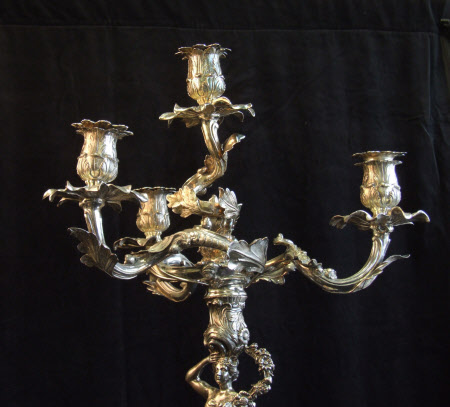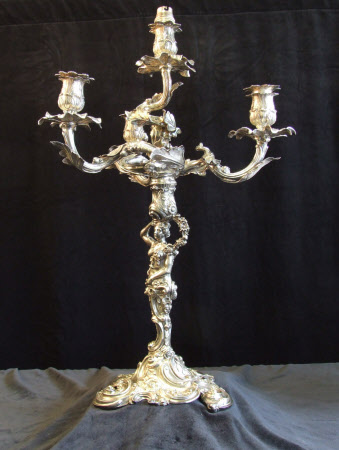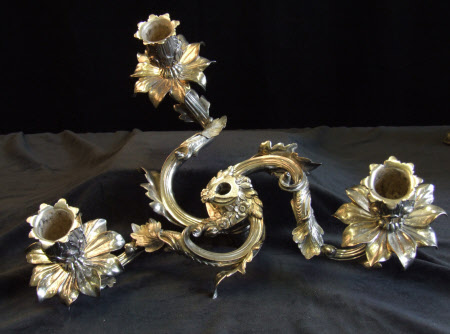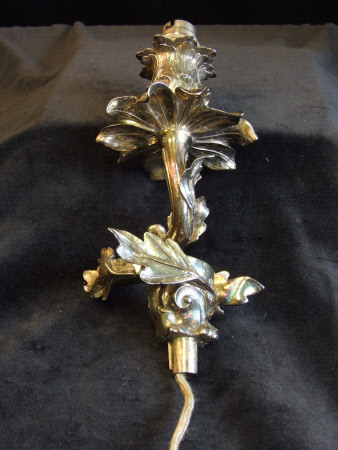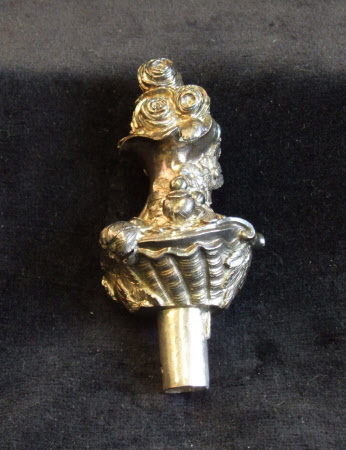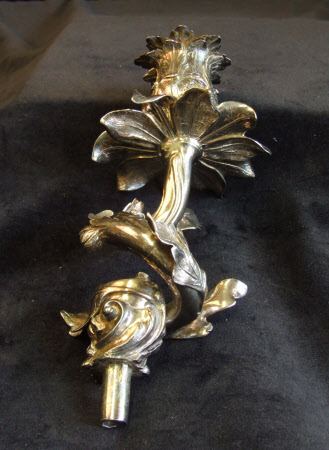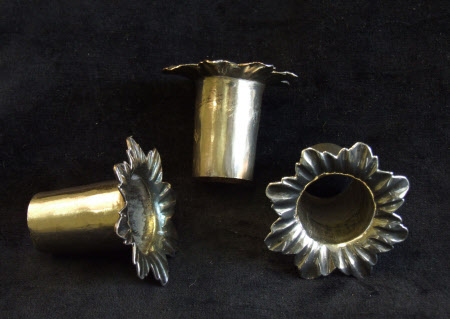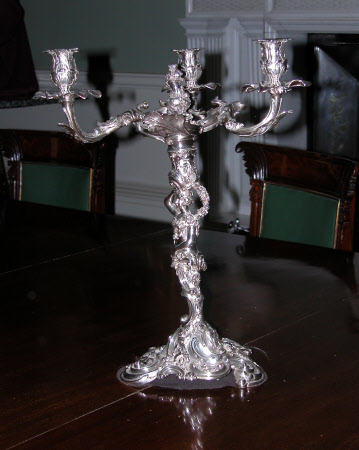Candelabra
Simon Le Sage and James Peltro
Category
Silver
Date
1758 - 1759
Materials
Sterling silver
Measurements
57.8 cm (Height, with fourth light fitted)
Place of origin
London
Order this imageCollection
Ickworth, Suffolk
NT 852077.11
Summary
One of twelve candlesticks with four-light branches, sterling silver, by Simon Le Sage and James Peltro, London, 1758/9. The candlestick is cast and chased and consists of an irregular triform, domed base of scrolls and flowers with a stem formed as a female term rising out of further scrolls and entwined in floral swags. The term holds a hand up to a vase-shaped scrollwork and floral socket which is also supported by the continuation of the floral swag. The branches fit into the socket and consist of three spiralling and twisting reeded branches embellished with applied cast and chased leaves and terminating in horizontal calyces of further leaves which form the drip pans. Above are foliate, vase-shaped sockets, the leaves bent over at the top to form a serrated, horizontal lip and the seamed, open-bottomed nozzles having rims shaped to conform. An additional, central socket can either be fitted with a shell and flower finial or with an additional arm which spirals well above the other three and has the same form of socket and nozzle. The fourth arm has been drilled for electricity. The stick has had a bolt applied to hold the stick and branches together with the finial in place. Heraldry: On the underside of the candlestick and on the pintle of the branches are engraved the quartered arms of the Hanoverian monarchs (pre-1801) within the Garter and beneath an imperial crown flanked by the initials G R.
Full description
For further detail see the master object entry.
Provenance
Jewel Office; allocated to George Hervey, 2nd Earl of Bristol (1721-75) as Ambassador to Madrid 1758; discharged to Lord Bristol 9 April 1759; by descent to the 4th Marquess of Bristol (1863-1951); accepted by the Treasury in lieu of death duties in 1956 and transferred to the National Trust in 1983.
Credit line
Ickworth, the Bristol Collection (National Trust)
Marks and inscriptions
Pintle of branches: Hallmarks: date letter ‘C’, leopard’s head, lion passant and maker’s mark ‘S∙L’ in italics, cup above and mullet below (Arthur Grimwade, London Goldsmiths 1697-1837, London 1990, no. 2576) for Simon Le Sage. Underside of stick: Hallmarks: date letter ‘C’, leopard’s head, lion passant and maker’s mark ‘S∙L’ in italics, cup above and mullet below (Arthur Grimwade, London Goldsmiths 1697-1837, London 1990, no. 2576) for Simon Le Sage. Underside of stick: Scratchweight: ‘oz [/] 159 10 [/] N ′ 11’. All the component parts, including the nozzles, are scratched with the number of the candlestick to which they belong, either with arabic or roman numerals. Not all the parts are still with the correct sticks.
Makers and roles
Simon Le Sage and James Peltro, goldsmith Simon Le Sage, goldsmith James Peltro, goldsmith
